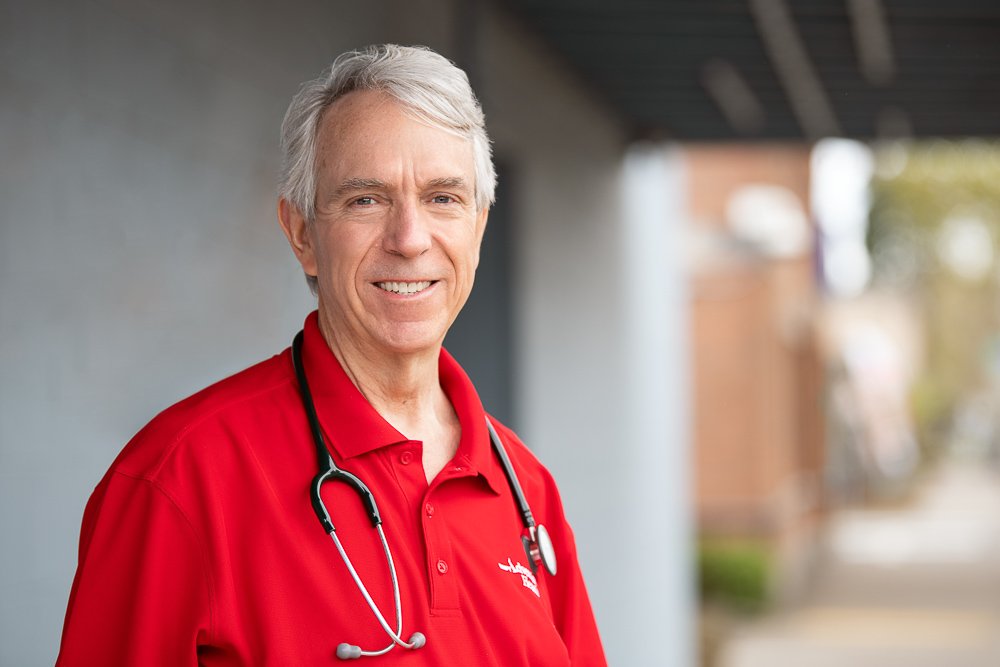“I felt like I was at the bottom of a deep well with no way to get out.” This is how one patient described their depression symptoms to me. Another patient having panic attacks said, “All of a sudden I was terrified and thought I was going to die, but I didn’t know why.”
Our mental health is just as important as our physical health, and the two are closely connected. After all, our brain is part of our body. Over 20 years ago I experienced an episode of depression that required medical treatment. I, too, felt like I was at the bottom of a well. I couldn’t understand why people around me were enjoying life when I could not find any enjoyment in my own life. I sought medical help and I successfully made my way through and came out the other side.
I learned from that episode that self-care is vitally important to both our physical and mental health.
Many of the lifestyle choices that improve our physical health can also improve our mental health. Mental health problems can sometimes be just as serious as physical health problems, so don’t hesitate to contact your health care provider if you have any concerns.
The National Institute of Mental Health says it well, “Mental health is more than the absence of a mental illness—it’s essential to your overall health and quality of life.”
What steps can we take to be mentally healthy?
Move! – No, I don’t mean pack your bags and relocate. I mean move your body! Walking 30 minutes a day can work wonders. It can even be broken up into 10-minute walks, 3 times a day. If you can only walk 20 minutes or 10 minutes at a time, go for it. Join a walking group for group support and fun interaction. Or, watch for the TBCC catalogue in your mailbox each quarter for the latest group fitness programming from partners like the Tillamook YMCA and NCRD.
Spend time outdoors – science tells us that we get extra benefit from being outside. Being outside can be a chance to take a break and enjoy some peace.
Make Healthy Food Choices – including lots of fruits and vegetables and whole grains in your diet helps reduce inflammation, helps with digestive health and helps you feel better overall. The Mediterranean Diet is a good place to start.
Sleep – try to get a minimum of 7 to 8 hours of sleep as often as you can. Avoid using your cell phone, computer or TV close to bedtime because blue screens can make it harder to sleep well.
Stay connected to positive people – Spend time with supportive friends and family. Healthy relationships help us feel better.
Relax – try to set aside time daily for yourself to sit and relax without using your computer, TV or cell phone (unless you are using a relaxation app). Try meditation, prayer, yoga, Tai Chi, Qi Gong or other calming activities. This is time for YOU. Check the schedule at the Tillamook YMCA for free community classes such as Tai Chi and Qi Gong.
Practice Gratitude – make a list of things you are grateful for, and before you go to sleep at night think of 3 positive things that happened during the day.
If you are already feeling stressed or overwhelmed, this list might be too long to tackle all at once. Choose one activity from the list to focus on and give it a try. I have been working on getting consistent sleep and it has made a big difference in how I feel.
What can we do to help a friend or loved one struggling with mental health issues? The best thing to do is to be present. Be with them. Listen. You don’t have to give advice or try to solve their problems. As someone who has been in that situation, I can tell you that just having someone there by your side can make all the difference in the world.
And if you feel you might need professional help, please know you have options. Talk to your health care provider. Many primary care offices have mental health professionals as part of their patient care team to make it easy for you to get the care you need.
Like physical health, mental health is not just one condition. In the way that our physical health can be affected by a wide variety of issues such as asthma, diabetes or high blood pressure, our mental health can be affected by a variety of issues including anxiety, depression, PTSD, bipolar disorder and others. The National Institute of Mental Health web page has a list of Health Topics to help us learn about and understand our mental health.
Knowledge is power. Understanding mental health helps us be better able to manage it. And, self-care is the one thing we can do for ourselves, often at no extra cost.
Visit the Tillamook County Wellness page for more articles about staying mentally healthy.
AUTHOR: Dr. Ben Douglas, MD Adventist Health Tillamook
Dr. Ben Douglas has been providing healthcare for more than 35 years. He is board certified in Family Medicine and Lifestyle Medicine. His focus is keeping people healthy from birth through the golden years. In his free time, Dr. Douglas enjoys cooking, running, sailing and playing guitar.
For more local health and wellness information, visit www.tillamookcountywellness.org or follow Tillamook County Wellness on Facebook, Instagram and Twitter.

